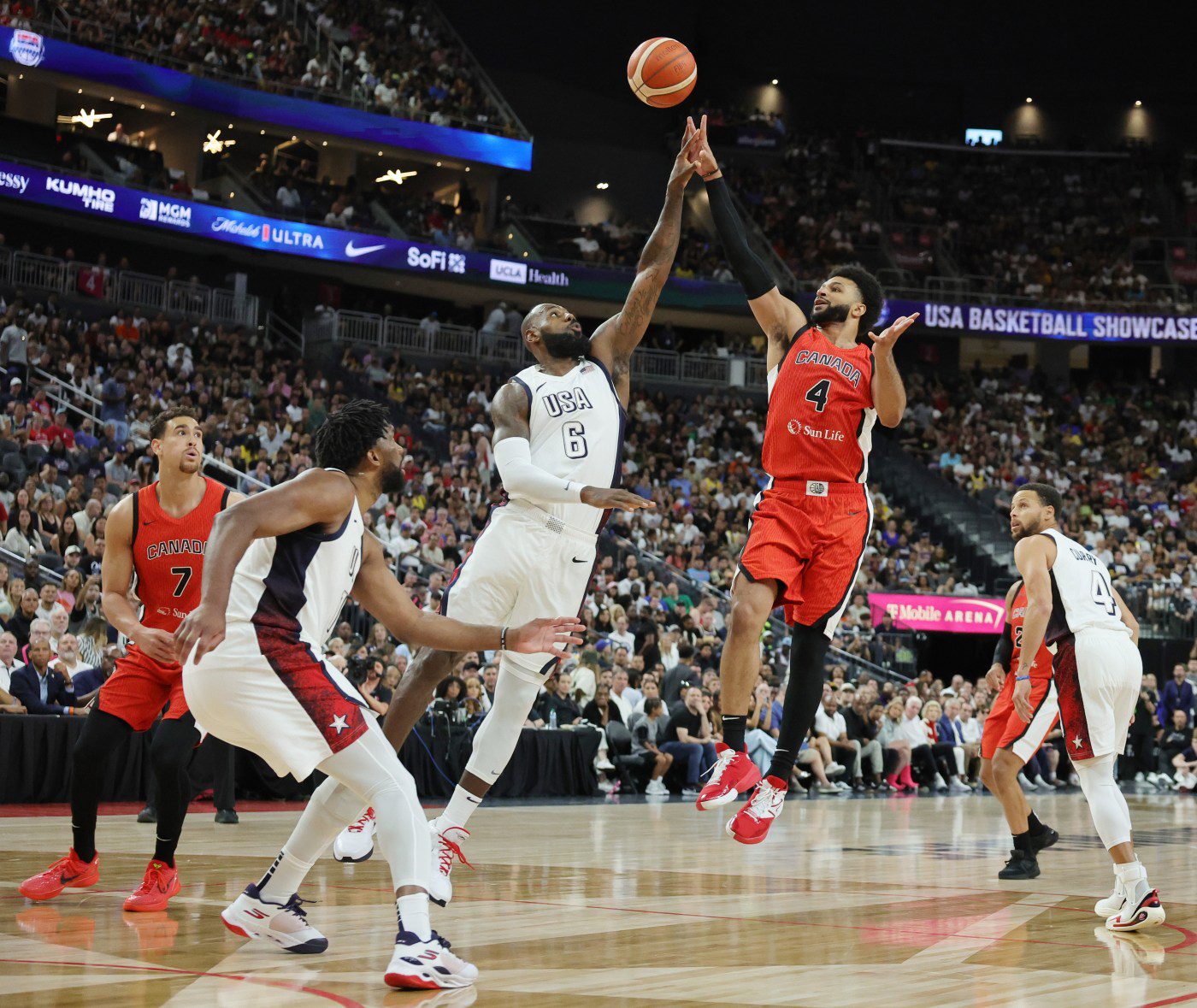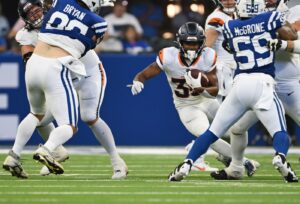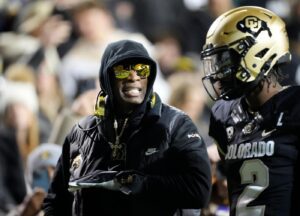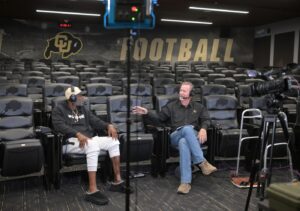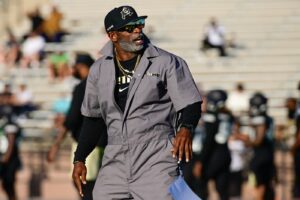LAS VEGAS – He coats the rim of the margarita glass. He is a sprinkled pinch in your favorite dish. He is lathered on vinegar chips.
Jamal Murray is salty.
It’s nothing new when meeting with reporters. The Nuggets’ star guard is known to brush them aside on occasion, either due to ambivalence, annoyance or distraction (like when he watched a UFC fight on his phone during a news conference).
Yet, when he is candid, there are few athletes in Denver better, especially after losses.
His response Wednesday night to the one question concerning Nuggets Nation, though, was unnerving. Why hasn’t Murray agreed to a contract extension?
“What (do) you mean?” said Murray when I asked about the talks following Team Canada’s 86-72 loss to Team USA in T-Mobile Arena. “When we get there, we get there I guess. I am playing games for Canada so it’s not on my mind.”
My conclusion? The fact that the Nuggets and their star guard have yet to finalize a deal is not an accident.
Shams Charania of The Athletic reported during the NBA draft that the Nuggets were expected to award Murray with a four-year, $209 million max contract extension. That was a few weeks ago. Since then, nothing.
Two things are at work, which could ultimately benefit both sides, but this situation demands attention. The Nuggets, by not handing Murray a deal before the Olympics, could be construed as mitigating risk. Murray has struggled with injuries, some nagging, one serious, and his decision to compete internationally leaves him vulnerable.
So, it’s hard to argue with the team pushing pause. Bennett Durando, The Post’s Nuggets beat reporter, wrote that the sides are likely to come to an agreement after the Summer Games.
Perhaps the optics will be better then. While Murray’s legacy in Denver is forever safe, what would it have looked like had the Nuggets rewarded the guard immediately after his worst playoff performance? Then consider general manager Calvin Booth’s comments about Murray after the Minnesota Timberwolves dispatched the Nuggets in the second round.
“If Jamal is in shape and in condition, he’s a totally different beast. He obviously wore down a little bit at the end of the playoffs. Anthony Edwards is maybe the best on-ball defender in the NBA. He was going to have to be in condition to get off the ball and move around a lot more, run him around,” Booth said. “I don’t know if playing since last June, coming off the ACL, some of the soft tissue injuries he had, if he was in condition to do that in this series.”
Wednesday did not soothe concerns. Edwards and Jrue Holiday bottled up Murray, who missed six of eight shots and finished with five points. It looked a lot like the Minnesota matchup.
In fairness, Murray’s supporting cast was nowhere near as good as the Nuggets’, especially without a passer like Nikola Jokic. But even in an exhibition game max contract players are expected to create offense. They are expected to make the All-Star team, something Murray has never done.
And let’s not forget the Nuggets already gave a max contract to an undeserving player in Michael Porter Jr. It has left them operating with no margin for error, strangled by the collective bargaining agreement and the luxury tax. The reality is that Nuggets are almost obliged to give Murray the max — yes, the CBA is messed up — but perhaps they have learned from MPJ by waiting, their patience sending subtle messages.
We want you. We need you. We will pay you. But we need more.
The idea of Murray waiting until the postseason to turn into Michael Jordan no longer works for the Nuggets. They require him at his best from the opening bell to mid-June. There is no Kentavious Caldwell-Pope or Bruce Brown to elevate the team if Murray deals with injuries and bouts of mediocrity.
In Murray’s case, the Olympics offer a chance to prove he is a centerpiece, that the clutch gene remains part of his DNA and it will be complemented by more consistency.
“He brings shot-making, poise. Jamal is a winner,” Canadian teammate Shai Gilgeous-Alexander said. “His decision-making, his talent, we are lucky to have him.”
Added Canadian tough guy Dillon Brooks, “Jamal is a workhorse. He knows the game in and out.”
Murray is not playing for his country without a contract. He has one year remaining on his deal. It is fascinating that Murray seems unbothered by the paused talks given the risk.
Being around Murray for practice and one game this week, the explanation appears two-fold. The contract is for the agent, and he has taken a hands-off approach with these issues before. And, secondly, he seems really jazzed about returning to the Canadian National Team for the first time since the 2015 Pan American Games where he starred as a 19-year-old.
I asked Murray why it was important to represent his country.
“It’s the Olympics,” Murray said.
True. But there are a lot of players who politely decline for a number of reasons, among them health, fatigue, and, um, a looming contract. Murray elaborated, saying looking down at Canada on his chest was emotional.
“It had been a minute,” Murray said. “When I was first out there, I felt excited.”
There is a way for this contract dance to work for the Nuggets and Murray, even if the last few weeks feel awkward. Murray uses the month of preparation and competition to produce the best season of his career. And the Nuggets watch him star for Canada, perhaps even lead them to a medal, and award him a max deal under more ideal conditions than weeks after a postseason collapse.
Then, we could just chalk it up to business being the salt of life.
Want more Nuggets news? Sign up for the Nuggets Insider to get all our NBA analysis.
